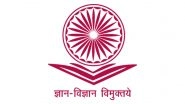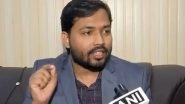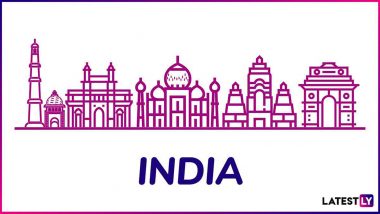Hyderabad, Jan 20 (PTI): NITI Aayog Vice-Chairman Rajiv Kumar on Thursday stressed the need for far more and far bigger interaction among the government, the academia and the industry.
Also Read | Inherited Property of Female Hindu Dying Intestate To Go Back To Source, Observes Supreme Court.
Addressing on virtual mode a session on ‘Higher Education Dialogue' on the theme - 'Revisiting Higher Education in India: Global, Local and Digital Imperatives' organised by the Indian School of Business (ISB) in partnership with NITI Aayog, he emphasised also the need for ramping up access to higher education for the population.
"We should have a far more, far bigger interaction between the government, academia and industry than we have today. We have to build platforms and this is where ISB and NITI should collaborate. We have started to do (with other universities) that but we need to make this far more vibrant. What is Silicon Valley about, what is Boston about...and the Golden Triangle in the UK. It is all about this interaction between the three stakeholders," Rajiv Kumar noted.
A large onus of that is on the academic institutions, he said.
"We need to devise in a situation where we can create a platform based on trust between the three stakeholders and that's the trust which says that we are all working for the same national objective," he said.
The gross enrolment ratio in India is 27 per cent while the world average is 37 per cent, he said.
Access to higher education for the country's population should be ensured, Kumar said pointing out that the surprising thing is that the enrollment in higher education has stagnated for the last three or four years.
The National Education Policy has targeted gross enrolment ratio of 50 per cent by the end of this decade, he said.
"We need to create 35 million more seats in higher education and despite the fact that we have more than 900 universities, 39,000 colleges but we are still far short of meeting the National Education Policy target of 50 per cent," he said adding these 35 million more seats are not going to come from brick and mortar campuses and hence they will have to come from hybrid campuses --brick-plus-click campuses, distant learning, open source learning, hybrid sort of learning.
Kumar said management education needs to have technology-related skills to be taught for management graduates which is going to be relevant for the future.
He further said much deeper R&D is also required.
The higher education has to become the driver of growth, but will become so and become far more relevant to society if it responds to the societal needs, he added.
Later answering to a question, Kumar said, "What we should learn from the West is the importance they give to learning, the importance they give to higher education. We don't give enough credit to our teachers, to our students, our researchers."
(The above story is verified and authored by Press Trust of India (PTI) staff. PTI, India’s premier news agency, employs more than 400 journalists and 500 stringers to cover almost every district and small town in India.. The views appearing in the above post do not reflect the opinions of LatestLY)













 Quickly
Quickly


